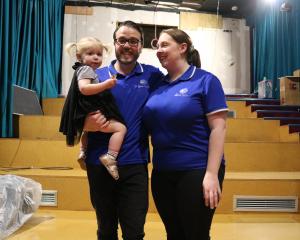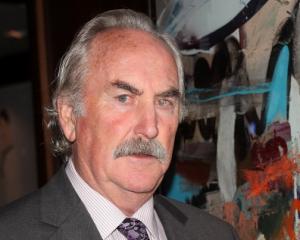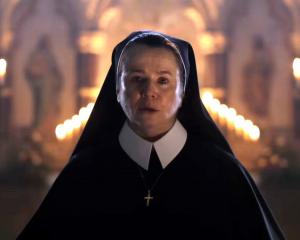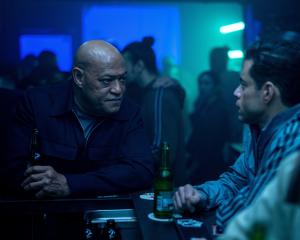Niki Caro's film version of award-winning novel The Vintner's Luck hits screens next week. Shane Gilchrist discusses angel wings, divine wine and long lunches with the New Zealand director.
N

Some seven years since she first started work on the film of the book, a week before its release on screens throughout New Zealand, Caro offers a conclusion during a telephone interview from her Auckland base.
Having taken stock of the film-making experience, swirled it around like a sommelier would a particular vintage, she reveals it has not been without its challenges.
"When I first approached Elizabeth about the option, I saw an amazing opportunity to talk about being human. It is such an elemental, sensual story. I was very drawn to it," Caro says, before disclosing the film was done in "fits and starts".
"In this story there was the opportunity to talk about the spiritual dimension of human life," Caro says. "As a film-maker, there is pretty much nothing in human nature or Mother Nature that doesn't compel me."
Caro, who has read Knox's Montana Award-winning novel "many times" and is thus well acquainted with its key themes, agrees on a quick list of those which flow through her reworked version.
There is love (of man, woman, spirit, wine ...); perseverance (the message that nothing great ever comes easily); sacrifice (says Caro, "you can't always have it your own way"); and transformation (the key character's greatest wine is his final vintage, one comprising all his life experience).
The issue of transformation has parallels in Caro's own life, too.
"I got the option for the book but then I had a baby, made a big film in Hollywood [North Country], then I came back to work to work on the screenplay, then had another baby. Life continues.
"I'm not the sort of film-maker who devotes myself entirely to the cause of film-making. It's not my singular driving force; it's working in tandem with all the other forces in my life. The thing that has surprised me greatly is that having a family, which is so time-consuming, actually makes my work better and gives me more insight, more sensitivity and instinct. It thrills me that my life and work are interchangeable."
In short, The Vintner's Luck follows the life of Sobran Jodeau (played by Jeremie Renier), an ambitious, passionate French wine-maker of the early 19th century, and the three (not counting wine) loves of his life: his young wife Celeste (Keisha Castle-Hughes), baroness Aurora (Vera Farmiga) and fallen angel Xas (Gaspard Ulliel), with whom Sobran forms a life-long friendship.
Each year, Sobran meets Xas, who tastes his vintages and offers counsel. The wine is a metaphor (a message in a bottle?), the drink being a distillation of its maker's experience. In the angel's case, the spiritual entity simply offers a means to reflect on the human experience. The overall thrust? No love without loss; no joy without pain.
All pain aside, the process of researching wine-making was highly enjoyable, Caro confides.
"Oh, did we drink . . . the winemakers are such characters and are so pleased to share their wine with you. We couldn't possibly just put it in our mouths and spit it on the floor. The wine was so beautiful that we were half-cut in parts of pre-production, I think . . . and very pleasantly so."
On the final day of shooting in France, during which Caro invited Knox to appear in a wedding scene ("She makes a very enigmatic cameo"), poor weather postponed production. The only option, Caro insists, was to wait.
"We drank the set - all of it. The crew, actors, everybody . . . we just sat there. What can you do? We had to go into the chateau and buy more wine and carry on shooting."
Despite such thirst, Caro concedes she is no connoisseur.
"In fact, I'm on the Philistine end of the spectrum, although I enjoy drinking wine. I was very intimidated by the language of wine, because it is a language I don't speak. Honestly, I have to say I have come to respect people who can speak of wine in that way, because I started to understand . . . when you have someone who can speak about wine in both poetic and plain terms, it can help you understand.
"The person who did that for me was Gaspard Ulliel. He is only 23, but he is a connoisseur. We went out for dinner and he is such a refined young man that he bought us a bottle of very expensive French wine. Honestly, I have to tell you, it was unbelievable. I could connect his passion for it with what I was tasting. It was exhilarating.
"I hope that the film can provide that sense - in an unpretentious way - of the thrill that nature, with help from man, can give. It is very magical film but also very earthy and sensual. I think it is a great way to spend a few hours of your life."
Some would tend to disagree.
Reviews have been mixed following The Vintner's Luck's premiere at the Toronto Film Festival last month. Though relatively obscure website Dark Horizons described it as a "lush, erotic and passionate film", one directed with an "exquisite sense of detail", reaction in larger, more influential publications has been less than generous.
The Hollywood Reporter's Peter Brunette struggled to reconcile Caro's latest effort with her earlier work on Whale Rider and North Country. Citing The Vintner's Luck's as "an overblown work of amazing silliness", he suggested the film stood little chance of commercial release "in any territory beyond its own native New Zealand".
Variety's Justin Chang ("glib, supernatural conceit, overstated moral lessons and overall dramatic torpor") and Screen Daily ("midway between absurd and engrossing, misjudged and intelligent") have also weighed in.
Caro's reaction?
"No film ever has a 100% track record critically. You don't have to reach too far to read some pretty horrible things about Whale Rider.
"You know, the day before that review [she is referring to the Hollywood Reporter article] I went to the premier in Toronto and there were 1000 people in the audience and I saw how engaged they were. They all stayed for the Q and A afterwards, which is rare... I was thrilled by their reaction."
Caro, as director, co-writer and producer, gave a lot of herself to the project. That's not unusual, she says. "I invest 100% in every film I make."
Despite the sumptuous costumes and grand location in Burgundy, France, the film was made on a "very low budget and done very fast", Caro says. Those constraints, allied to a creative instinct, prompted Caro to use handheld camera techniques.
"Typical period films often have a very stately pace to the theme. They have big cranes that you put the cameras on that can sweep down as the carriage comes in, follow the people in the costumes walking to the stately home . . . This film is not like that; it takes a very modern approach.
"I wanted the film to feel very immediate and very instinctive, to feel the riotousness of life. It is all handheld . . . It is a style I like because it can respond immediately to performance. It is sometimes very urgent, which is much more the language of music videos or amateur camerawork.
"North Country was handheld also, but in a very quiet way. For North Country, of course, we had an even bigger, more epic landscape. The world of The Vintner's Luck is very much encased in one valley in France," Caro says, adding three days were spent shooting footage in West Auckland.
Family is important to Caro. If work requires her to travel far from her Auckland home, the family packs up, too.
"We travel for work, but we always come back like boomerangs . . . With all my films, I have my family with me. But for this film I invited the crew members to bring their families. It can be very hard for partners to stay at home with children when their film-making partner is off drinking wine, working serious hours in this incredibly lush, fertile place.
"It was wonderful. We had many of the crew's kids come. It humanises the work. Also, it is great to have children on standby, to pop them into costume.
My baby is in the film; Keisha's baby is in the film," she says, referring to Castle-Hughes, who was nominated for best actress at the 2003 Academy Awards (at 13, she was the category's youngest nominee in history).
What next for Caro? Has the publication earlier this year of The Angel's Cut, Knox's sequel to The Vintner's Luck prompted any thoughts?
Unlikely, it seems. Though she enjoyed Knox's latest work ("I'm sure it would be an amazing film, but an incredibly expensive film"), Caro has other plans.
She is in the process of casting a film called Buttercup. A tender story about a girl and her dad, it is unlikely to feature angels. The wings just take too long to make.
"The first thing anybody said to me after reading [The Vintner's Luck] was `how are you going to do the wings?' And they'd say it in a very protective and somewhat threatening manner.
"It literally took us years in the research and development to create them so that I could direct the wings in both time and space, so they didn't have to be made in a computer. I felt very strongly that the film needed to be both magical and real and that the angel should be made to an almost documentary level of realism.
"We went back to Leonardo da Vinci's drawing and were able to taxidermy the wings of deceased birds and scale up our wings so that they would likely lift a human form. They have about a seven and a-half metre wingspan.
"What nature does so effortlessly . . . With all our human technical brilliance, we have no idea."
• See it
The Vintner's Luck makes its New Zealand premiere in Auckland on Thursday, November 4, and opens nationwide on November 12.












